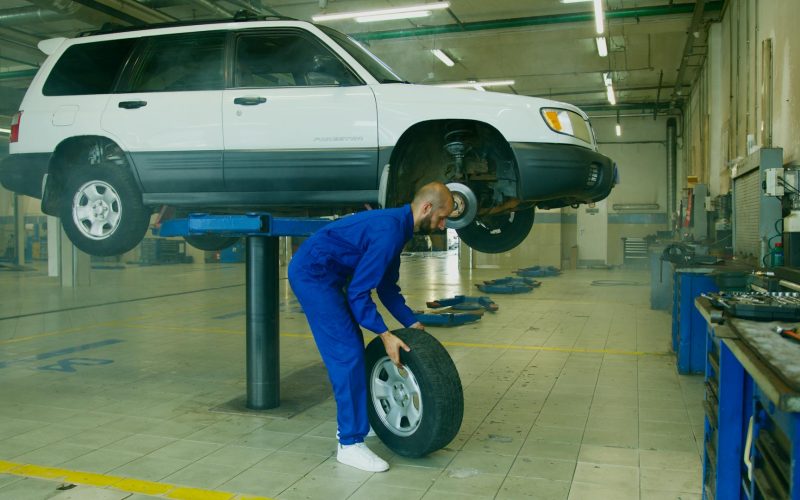Car accidents can happen for many reasons, but one of the most unexpected and dangerous causes is mechanical failure. A faulty brake system, a tire blowout, or an engine failure can put drivers in life-threatening situations, often leading to serious accidents. When such failures occur, understanding how to respond both legally and safely is essential. This guide will walk you through the necessary steps to take after a mechanical failure-related accident and explain how a car accident lawyer in Orange County can help protect your rights.
Common Mechanical Failures That Cause Car Accidents
1. Brake Failure
Brake failure can occur due to worn-out brake pads, low brake fluid, or faulty components. When brakes fail, stopping the vehicle in time to avoid a collision becomes nearly impossible.
2. Tire Blowouts
Tire blowouts often happen due to excessive wear, improper inflation, or road hazards. A sudden blowout can cause a driver to lose control of the vehicle, leading to an accident.
3. Engine Failure
If an engine fails while driving, a car may lose power steering and braking, making it difficult to maneuver safely. Engine failures can result from overheating, oil leaks, or faulty electrical components.
Understanding these mechanical risks emphasizes the importance of regular vehicle maintenance and using a vehicle inspection checklist to prevent accidents.
Immediate Safety Steps After a Mechanical Failure Accident
If you experience a mechanical failure while driving, follow these safety measures to minimize harm:
- Remain Calm and Control Your Vehicle – Try to steer safely to the side of the road. If possible, use your emergency brake and downshift to slow down.
- Turn on Hazard Lights – This alerts other drivers that your vehicle is in distress, reducing the risk of further collisions.
- Call 911 – If the accident has caused injuries or property damage, contact emergency services immediately.
- Check for Injuries – Assess your own condition and that of any passengers. Provide first aid if necessary until paramedics arrive.
- Exit the Vehicle Safely – If your car is in a dangerous position, exit cautiously and move to a safe location.
Legal Steps to Take After a Mechanical Failure-Related Accident
1. Gather Evidence
To strengthen your claim, collect as much evidence as possible:
- Photographs: Take pictures of the accident scene, vehicle damage, tire condition, and any skid marks.
- Witness Statements: If bystanders saw the incident, ask for their contact information and statements.
- Police Report: Ensure officers document the accident properly.
- Vehicle Inspection Checklist: If you have maintenance records or a recent inspection checklist, keep it as evidence to prove that you maintained your car properly.
2. Determine Liability
A mechanical failure accident can involve multiple liable parties, including:
- The Vehicle Owner: If a driver neglected routine maintenance, they could be held responsible.
- The Manufacturer: If a defective part caused the accident, the manufacturer could be liable.
- The Mechanic or Repair Shop: If improper repairs contributed to the failure, the repair shop might bear responsibility.
- A Tire or Parts Supplier: If a faulty tire or defective replacement part caused the accident, the supplier could be at fault.
Determining liability requires expert analysis, and a car accident lawyer in Orange County can help investigate the cause of the accident.
3. Notify Your Insurance Company
Report the accident to your insurance provider as soon as possible. Be factual but avoid admitting fault until all aspects of the mechanical failure are investigated.
4. Seek Legal Assistance
An experienced car accident lawyer in Orange County can help you:
- Prove that the mechanical failure was not due to driver negligence.
- Hold the responsible party accountable (whether it’s the manufacturer, repair shop, or another entity).
- Negotiate with insurance companies to ensure fair compensation.
- File a lawsuit if necessary to recover damages.
Preventing Mechanical Failures: The Importance of a Vehicle Inspection Checklist
Regular vehicle inspections are crucial to preventing accidents caused by mechanical failure. Drivers should follow a vehicle inspection checklist that includes:
- Brake System Check: Inspect brake pads, fluid levels, and responsiveness.
- Tire Condition: Ensure proper inflation, check for wear, and rotate tires regularly.
- Engine Maintenance: Monitor oil levels, coolant, and warning lights.
- Battery and Electrical System: Test battery life and ensure all lights function correctly.
- Fluid Levels: Check transmission, power steering, and brake fluids.
Routine maintenance can help identify potential mechanical issues before they become serious problems, reducing the risk of accidents and legal complications.
Final Thoughts
A car accident caused by mechanical failure can be distressing, but knowing what steps to take can make a significant difference. Prioritizing safety, gathering evidence, and seeking legal assistance from a car accident lawyer in Orange County can help protect your rights. Additionally, following a vehicle inspection checklist ensures that your vehicle remains in good condition, preventing accidents before they happen.
Regularly checking for warning signs like unusual noises, dashboard alerts, or fluid leaks can help detect mechanical issues early. By staying proactive with regular maintenance, understanding liability, and knowing your legal options, you can minimize risks and navigate any accident-related issues with confidence.












